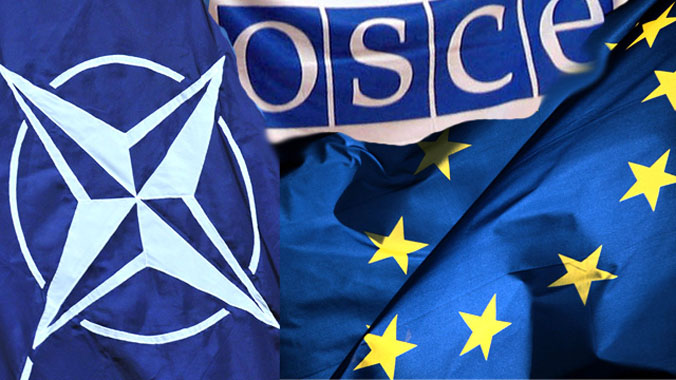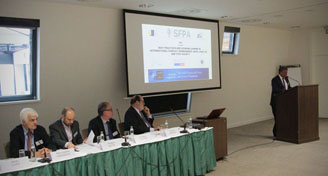Improving international conflict management
International organisations like NATO, the European Union (EU) and the Organization for Security and Co-operation in Europe (OSCE) have an integral role to play in conflict resolution and crisis management – but each has different strategies and visions of how to approach a conflict.

Academics, policy analysts and other experts explored innovative ways to enhance cooperation between international organisations, during a workshop in Bratislava, Slovakia, from 8 to 10 June.
Participants examined international crisis management in several protracted, frozen and newly emerged conflicts in the Euro-Atlantic and Eurasian space, but discussions largely focused on the current conflict in Ukraine.
“The workshop aims to bring the discussions about international conflict management to Central Europe as we witness the most serious crisis after the fall of the Berlin Wall in our immediate neighbourhood,” said Professor Alexander Duleba of the Slovak Foreign Policy Association.

Taking stock of the strengths of NATO, the EU and OSCE’s strategies and toolboxes, experts identified overlapping competencies between these key actors. This was then used as a baseline to assess the added value of each organisation.
Speakers from partner countries, including Bosnia and Herzegovina, Georgia, the Republic of Moldova and Ukraine, added an interesting regional perspective to discussions, with Central and Eastern Europe regarded as a ‘laboratory of international conflict management activities’.
A comprehensive approach to crisis resolution
Workshops like this three-day event supported by the NATO Science for Peace and Security (SPS) Programme show the importance of identifying mutually reinforcing roles, maximising strengths and pooling resources to respond to a continuously evolving security landscape.
“The synergy between NATO, the EU and OSCE has a strong history of achievement. Our organisations hold regular bilateral and multilateral staff-level talks where we strive to identify ways to enhance practical cooperation in operations and provide mutual support in the field,” said Michael Gaul, Senior Advisor of the SPS Programme.
Civil society in the lead
The role of civil society in conflict management, conflict resolution and transformation activities was another key topic of discussion. Experts argued that due to the multi-level and multi-actor nature of conflict resolution activities, civil society should be the leading actor in the process to avoid imposed reconciliation.
“It is not only about humanitarian aid but also about education, rebuilding the society and assisting in processes towards reconciliation after violent conflicts,” said Milan Kajo Zbořil of the National Democratic Institute, Moldova.
